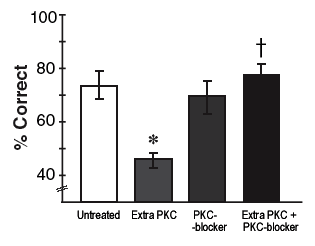Bees collecting nectar and pollen from a thistle.
Did you know there are only four sentence types in English?
To improve your writing and reading skills in English, I'll teach you all about simple, compound, complex, and compound-complex sentences in this grammar video. You'll learn how to identify
the independent and dependent clauses. Don't worry; it's easier than it sounds!
By learning to identify and use these sentence structures, you'll make your writing more interesting and dynamic. I'll also share many example sentences in the lesson, so you can practice with my help. http://www.engvid.com/the-4-english-s...
TRANSCRIPT
Hi. Welcome back to www.engvid.com. I'm Adam. Today's lesson is a writing lesson,
but it's also a spoken English lesson. It's about anything to do with English, because we're going to
be looking at sentence types. Now, of course, when you speak, you're using all kinds of sentence types. But, especially in writing, it's important to know the different types of sentences,
because, especially if you're going to be writing tests, they want to see sentence variety.
And even if you're not writing tests, anything you write, if you're using only one type of sentence, your writing becomes very bland, very boring, very hard to follow, because it's a little bit monotone. So what you need to do is you need to vary...
You need a variety of sentence structures in your writing to give it a little bit more life. Okay?
Luckily, you only need to know four sentence types. We have simple sentences,
compound sentences, complex sentences, and compound-complex. Now, this is not exactly easy,
but it's not exactly hard, either. If you figure out what you need to have in each one,
in each sentence type, just make sure it's there. Okay? Let's start.
A simple sentence has one independent clause. A little bit of review: What is an independent clause? An independent clause has a subject and a verb, and can complete an idea. It can stand by itself, because the idea in that clause is complete. I don't need to add anything else to it. Okay.
A compound sentence has two or more independent clauses, joined by a conjunction.
A compound conjunction: "and", "but", "or", "so", "for" (not very common), etc.
So, we join two independent clauses with a compound conjunction. You can have more, but again, you have to be a little bit careful. Once you get to three, start to look for a way to finish
your sentence, because if you get to the fourth, you already have a crazy sentence
that has the... Runs the risk of being a run-on sentence. Eventually, you're going to make a mistake, you're going to miss something, and the whole sentence falls apart.
I don't recommend three, but you can put three.
Then we have a complex sentence. A complex sentence has one independent clause,
plus one or more dependent clause. A dependent clause is a clause that has a subject and a verb,
but cannot stand by itself. It is not a complete idea. It has some sort of relationship to
the independent clause. We have three types of dependent clauses.
We have noun clauses, we have adjective clauses, and we have adverb clauses. Okay?
That's a whole separate lesson. You can look at that later. But you have to have one of these,
plus one of these, and you have a complex sentence.
Next we have a compound-complex sentence. Here you have two or more independent clauses, again, joined by a conjunction, and one or more dependent clause. Okay?
So you have basically all the elements in this sentence.
Then, once you have all this stuff, you can add as many complements, or basically extras,
as you want. So, let's look at an example. We're going to start with the simple sentence:
"Layla studied biology." Very simple. I have a subject, I have a verb, I have an object. Okay?
This is a simple sentence. It's an independent clause; it can stand by itself as a complete idea.
Now, I can add anything I want to this that is not another clause of any type, and it'll still be a simple sentence. So I can say: "My friend Layla studied biology in university." I'll just say "uni" for short.
I have more information, but do I have a different type of sentence? No. It's still a simple sentence.
Now, let's look at this sentence. First, let me read it to you: "Even with the weather being that nasty, the couple and their families decided to go ahead with the wedding as planned."
Now you're thinking: "Wow, that's got to be a complex sentence", right? "It's so long.
There's so much information in it." But, if we look at it carefully, it is still a simple sentence. Why? Because we only have one independent clause. Where is it? Well, find the subject and verb combination first. So, what is the subject in this sentence? I'll give you a few seconds, figure it out. Hit the pause key, look at it.
Okay, we're back. Here is the subject: "the couple and their families".
Now, don't get confused with this "and".
Turbo Charged Reading:
Read and Release Time.
Read and release your Personal, Professional and Social Potential
Contact M’reen at: read@turbochargedreading.com
You can TCR specialist and language dictionaries
that are spontaneously
accessed.
I can Turbo Charge Read a novel 6-7 times faster and remember what I’ve read.
I can TCR an instructional/academic book around 20
times faster and remember what I’ve
read.
A practical overview of Turbo Charged Reading YouTube
How
to choose a book. A Turbo Charged Reading YouTube
Emotions when Turbo Charged Reading YouTube
Perhaps you’d like to check out my sister
blogs:
http://ourbusinessminds.blogspot.co.uk/ takes
advantage of the experience and expertise of others. http://mreenhunthappyartaccidents.blogspot.co.uk/ just for fun.
To
quote the Dr Seuss himself, “The more that you read, the more things you will
know.
The more that you learn; the more places you'll go.”

























